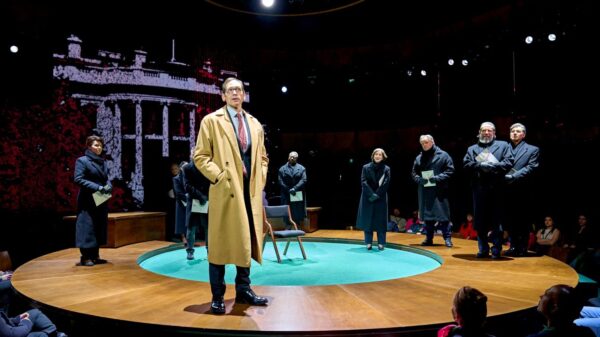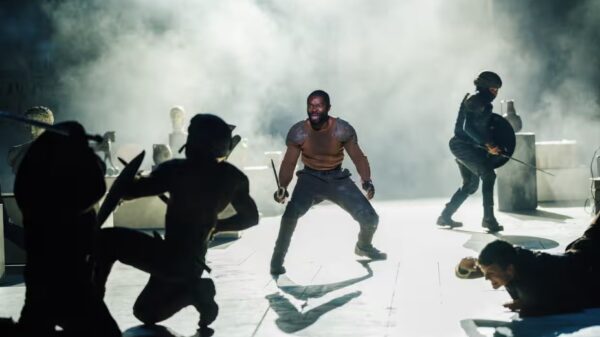Roar writer Saul Levene on the new musical adaptation of “Prince of Egypt”.
In my home, as well as many other Jewish homes and synagogues, watching the 1998 Dreamworks’ hit “The Prince of Egypt” is a ritual almost as prevalent as the Passover Seder. Songs like “When You Believe” and “Deliver Us” are deeply ingrained in my consciousness as physical manifestations of that deeper, religious significance of the history of the birth of the Jewish people. Much of this feeling was respected in the movie. One thing that the new “Prince of Egypt” musical could have taken note from was the couple of lines before the film starts that attest to the creator’s understanding of how cherished this story is to millions around the world.
The staging, however, is phenomenal. The pyrotechnics, choreography and use of space recreate glorious moments like the splitting of the sea or using bikini-clad dancers to create chariots, winds of dust and seas of blood. It’s a spectacle that really tugs at your heartstrings. Luke Brady (Moses) and Christine Allado (Tzippora) sing beautifully and almost manage to save the musical from the bastardisation of plot that ultimately left me feeling betrayed and heartbroken.
Poetic license is to be expected, but not at the expense of divesting much of the story of its value. The religious elements of the story are largely played down; the ‘bromance’ between Ramses and Moses is played up. So much so, that Moses wants to leave the Hebrews at the sea to return with his brother. All the piety, any semblance of connection or respect to its source material, is largely discarded. When Moses, the man regarded as the greatest prophet ever to exist, says he can’t see the future but feels that Egypt will become greater than ever before, not on the back of slave-labour, the betrayal is complete.Â
The story has depth because it has stakes. People die, mistakes are made, other people pay for them. Can attempted genocide be swept under the rug? Does Moses even have a connection to his people? Their reconciliation and recasting of Ramses not as a stubborn, arrogant king but a trapped man in a broken system – Moses as God’s unwilling servant – creates questions as to why Moses chose the Hebrews over his brother in the first place.Â
On top of this, one cannot shake the feeling that the character of Moses was diminished in order to make space for Miriam, Tzippora and Ramses’ new wife, Nefarti (absent in the original film). Despite this, their respective character points could largely be summed up as whining, sporting one-note defiance, as well as snobbish and emotionless. This last character trait even got a song, “Heartless,” to explore just how poorly developed she had been for the majority of the musical.
Despite this, many of the songs hit their mark. The huge breadth of “Deliver Us” and watching the Israelites sing to freedom brings back that spine-tingling sensation from childhood.
Maybe there’s a reason the show isn’t being renewed in January. When God is a tyrant “just like him” (the previous pharaoh that killed a generation of babies out of insecurity), Moses a weakling, all the women either overly emotional or expressly ‘difficult,’ it’s hard to find the depth underneath all the theatricality.Â


















